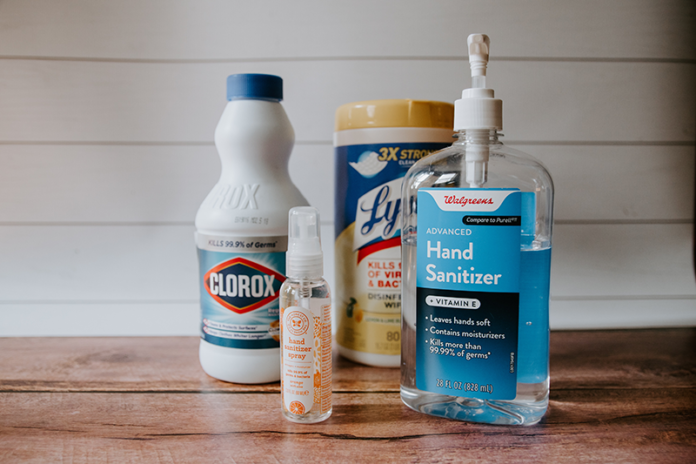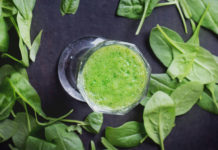Have you been using more than your fair share of toxic household cleaners since the COVID-19 Pandemic began?
Or, maybe you were using bleach and antimicrobial cleaners for routine cleaning before that? Indoor-air quality has topped the U.S. EPA’s list of health concerns facing Americans for many years. And the culprit is chemicals — emitted by cleaners, air fresheners, cabinetry, furniture, flooring and other fixtures.
Left unchecked, there are a number of dangerous toxins that can build up in our bodies over time and lead to diseases. Fortunately, there are some steps you can take to investigate your products and make changes if safer substitutes are needed.
From VOCs to Endocrine Disruptors, Many Chemicals are Questionable
Volatile Organic Compounds (VOCs) were the focus when the EPA first raised indoor air quality concerns almost 20 years ago. A 2018 study showed that standard household products can emit as many VOCs as cars. Chronic exposure can lead to an array or health problems – from respiratory problems to cancer.
Publicity and general public knowledge can be limited, even when the government determines a product can be dangerous, and enacts a new safety law, such as in 2018 when a national formaldehyde limit was set for composite wood products. Formaldehyde is a VOC, and a known carcinogen.
Of additional concern are products that inhibit bacterial growth. One of the best-known is triclosan, which studies in animals suggest could disrupt the endocrine system. It is in many products, including toothpaste. Also, in antimicrobial clothing, and even certain flooring products in an effort to prevent mold growth.
It did make the evening news in 2016 when the Food and Drug Administration (FDA) declared that triclosan was not safe for use in health care settings, and banned over-the-counter consumer antiseptic products containing triclosan, including liquid, foam and gel hand soaps, bar soaps, and body washes.
Though only a semi-VOC, a plasticizer known as ortho-phthalates – an ingredient found in some detergents, cosmetics, vinyl shower curtains and more – also has been associated with developmental delays in young children.
Yes, there are too many chemical names and potential concerns for the average person to assess.
Get Specific Information On Your Cleaners Here
The Environmental Working Group (EWG), a non-profit organization, has evaluated virtually any household cleaner on the market, and you can check your product’s score on their website. EWG also has compiled information for other product categories, including personal care and cosmetics.
“Although government, scientific and regulatory agencies have focused considerable attention on chemicals suspected of causing cancer, they have devoted far fewer resources to evaluating substances that may be toxic to the brain and nervous system, the hormone system and other organs,” EWG’s website reads. Investigating the full range of risks of cleaning products to public health and the environment should be an urgent priority.”
Take Some Simple Steps
Real Simple magazine has put together some good information for assessing whether a product is non-toxic and for using natural cleaners, such as lemon, baking soda and white vinegar.
“Start by scanning the label for terms such as non-toxic, plant-based, organic, clean, biodegradable, chemical-free, paraben-free, cruelty-free, synthetic fragrance-free, preservative-free, or hypoallergenic,” the article reads. “Most safe products will have at least one or two of these listed.”
The article also recommends looking your products up on EWG’s website.
Consider Detoxifying Treatments
Reducing chemicals in your indoor-air at home is a good start. Exposure outdoors, at work and other places you travel to is inevitable. Taking steps to cleanse your system is a good idea.
Here are a few tips to get your body cleansed without starving yourself or going to the extreme. Natural Health Magazine also has a great article that highlights supplements and multivitamins, as well as the importance of water in your diet to help boost wellness.
If you are interested in a full detox program, make sure to consult your physician before you start. Detox can cause some medications to be less effective.
If your physician is not familiar with detoxification/cleansing programs, I will be glad to be your health coach. Please feel free to contact me.








